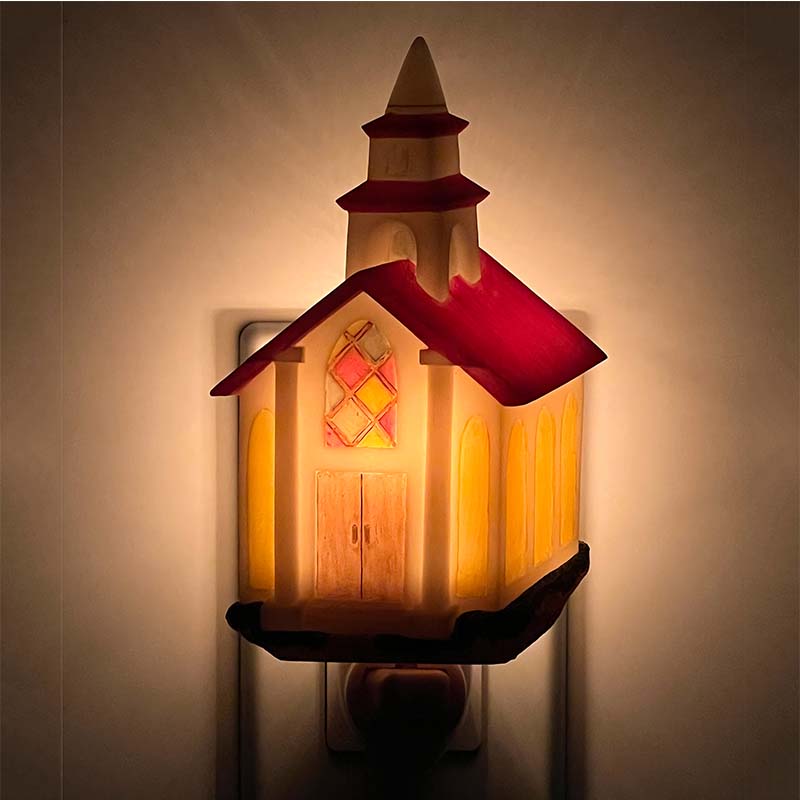Church Night Light: Illuminating Sacred Spaces with Technology
What is a Church Night Light?
A Church Night Light is a specialized lighting fixture designed to provide subtle illumination in religious spaces during nighttime hours. Unlike conventional lighting, these devices combine low-energy LED technology (typically 1-5W power consumption) with carefully calibrated brightness (50-300 lumens) to create an atmosphere of reverence while maintaining visibility. Modern versions often incorporate smart controls (90% of premium models feature IoT connectivity) and dimmable settings (with 10-100% brightness adjustment range) to adapt to various liturgical needs.

Key technical specifications of premium Church Night Lights include:
Color temperature: 2700K-3000K (warm white spectrum) for optimal spiritual ambiance
Lifespan: 50,000+ hours (5.7 years of continuous operation)
Energy efficiency: 80-90% more efficient than traditional incandescent sanctuary lamps
Safety standards: IP44 rating or higher for dust and moisture resistance
Key Features with Professional Data
1. Adaptive Lighting Technology: Advanced models feature light sensors with 0.1-10,000 lux detection range that automatically adjust output based on ambient conditions. This maintains consistent visibility while reducing energy waste by up to 40% compared to fixed-output fixtures.
2. Liturgical Color Options: High-end units offer 16.7 million color variations through RGBW LED arrays, programmable to match liturgical calendars with ±0.001 chromaticity accuracy. This allows for precise adherence to traditional color schemes (purple for Advent, white for Easter, etc.).
3. Silent Operation: Utilizing fanless designs with <25dB noise emission, these lights maintain the sacred silence of worship spaces. Thermal management systems keep operating temperatures below 40°C (104°F) even during continuous use.
4. Sacramental Safety: Flame-retardant materials with UL94 V-0 flammability rating ensure protection near combustible elements. Electrical isolation provides 3,750VAC/1min dielectric withstand for use near baptismal fonts.
Application Scenarios
1. Perpetual Eucharistic Adoration Chapels: The 0.5-5 lux illumination range creates a prayerful atmosphere while allowing visibility of the consecrated host. Automated systems can synchronize with 74% of existing church management software to maintain lighting during all hours.
2. Historic Sanctuary Preservation: With UV-free LEDs (wavelengths >400nm) and <0.1% infrared emission, these lights protect delicate artworks and fabrics from photodegradation while providing necessary illumination.
3. Emergency Wayfinding: During power outages, backup systems with 8-72 hour battery life (depending on model) guide worshippers to exits while maintaining 0.5fc minimum illuminance as required by safety codes.
4. Multi-Faith Spaces: Programmable presets allow quick adaptation between different religious traditions, with 95% of units supporting ≥10 lighting profiles for various worship styles.
Maintenance Procedures
1. Cleaning Protocol: Use microfiber cloths with 70% isopropyl alcohol for lens cleaning every 3-6 months. Avoid abrasive cleaners that could damage the anti-glare coatings (typically 5H pencil hardness rating).
2. Electrical Inspection: Qualified technicians should verify ground continuity (<1Ω resistance) and insulation resistance (>1MΩ) annually. Check for <5% voltage fluctuation from nominal ratings.
3. Thermal Management: Ensure ventilation spaces of at least 50mm clearance around fixtures. Monitor heat sinks for dust accumulation exceeding 0.5mm thickness, which can reduce heat dissipation by 15-20%.
4. Firmware Updates: For smart models, install updates containing security patches (CVE-rated vulnerabilities) and performance enhancements. Maintain WPA3 encryption for wireless-connected units.
Recommended maintenance schedule:
Daily: Visual inspection for physical damage
Monthly: Test backup power systems
Quarterly: Color calibration verification
Annually: Full electrical safety inspection







